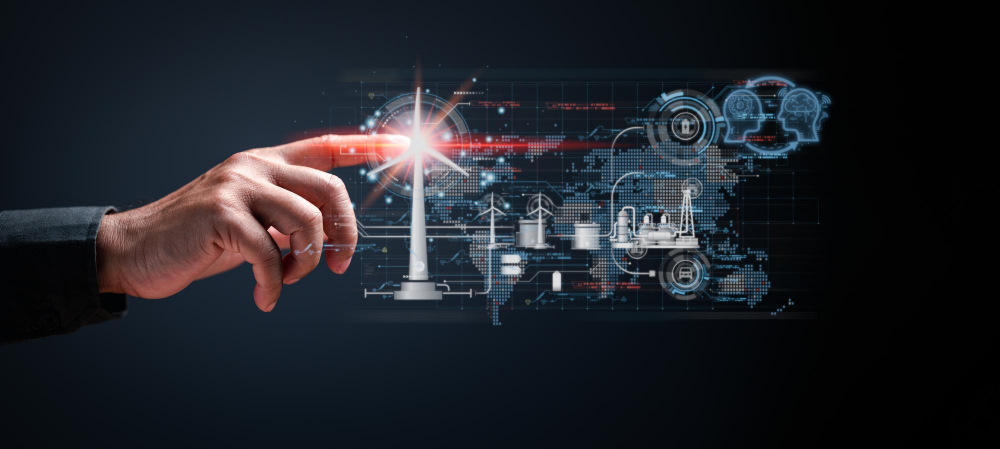- Blog
- September 20, 2024
Top Technology Skills to Acquire by 2025-26

- Blog
- September 20, 2024
Top Technology Skills to Acquire by 2025-26
As we approach the mid-2020s, the pace of technological advancement is accelerating, creating new opportunities and challenges in the job market. To stay competitive, professionals need to anticipate the skills that will be most in demand over the next few years. The landscape is shifting towards emerging technologies that promise to redefine industries and create new career pathways. Here are the best technology skills to acquire by 2025-26 to ensure you remain at the forefront of this digital transformation.
- Artificial Intelligence (AI) and Machine Learning (ML)
Artificial Intelligence and Machine Learning have been driving innovation across various sectors, from healthcare to finance to retail. By 2025-26, AI and ML will likely become even more integral to business operations, making these skills indispensable for tech professionals.
Why It Matters:
AI and ML will continue to transform how we interact with technology, automate tasks, and make data-driven decisions. Acquiring expertise in AI/ML algorithms, natural language processing, and deep learning will be crucial for those looking to develop intelligent systems, predictive models, and autonomous solutions.
- Quantum Computing
Quantum computing, once confined to theory, is quickly advancing toward real-world applications. By 2025-26, quantum computing is expected to break new ground, particularly in cryptography, complex simulations, and optimization problems.
Why It Matters:
Quantum computing has the potential to tackle challenges that are beyond the reach of traditional computers. Gaining skills in quantum algorithms, quantum mechanics, and quantum cryptography will position you as a pioneer in a field poised to revolutionize industries ranging from finance to pharmaceuticals.
- Edge Computing
As the Internet of Things (IoT) continues to expand and the need for real-time data analysis grows, edge computing emerges as a critical solution. By 2025-26, edge computing will be critical for managing the massive amounts of data generated by connected devices.
Why It Matters:
By processing data closer to its origin, edge computing significantly decreases latency and bandwidth consumption. Professionals with skills in edge computing, distributed systems, and IoT architecture will be in high demand as organizations seek to enhance their data processing capabilities and support advanced applications like autonomous vehicles and smart cities.
- Cybersecurity
As technology evolves, so do the threats that target it. Cybersecurity will remain a top priority for businesses and governments alike, with the demand for cybersecurity professionals expected to continue growing through 2025-26.
Why It Matters:
With the rise of sophisticated cyberattacks, cybersecurity expertise will be essential to protect sensitive data, ensure regulatory compliance, and safeguard critical infrastructure. Skills in threat detection, ethical hacking, encryption, and incident response will be crucial for anyone looking to build a career in this field.
- Blockchain and Decentralized Applications (DApps)
Blockchain technology, best known for powering cryptocurrencies, is expanding into other areas such as supply chain management, healthcare, and decentralized finance (DeFi). By 2025-26, blockchain is expected to underpin a variety of decentralized applications (DApps).
Why It Matters:
Blockchain offers transparency, security, and decentralization, making it a powerful tool for building trust in digital transactions. Skills in blockchain development, smart contracts, and decentralized finance will be valuable for those looking to innovate in industries seeking to leverage the benefits of distributed ledger technology.
- 5G and Next-Generation Connectivity
The rollout of 5G networks is already underway, but by 2025-26, 5G will likely be ubiquitous, enabling a new era of connectivity and innovation. This next-generation network will support everything from autonomous vehicles to advanced IoT applications.
Why It Matters:
5G will enable faster, more reliable connections, allowing for real-time data processing and enhanced user experiences. Skills in network engineering, telecommunications, and 5G technology will be critical for professionals involved in deploying and optimizing next-generation networks.
- Robotics and Automation
Robotics and automation are set to transform industries like manufacturing, logistics, and healthcare. By 2025-26, advancements in robotics will enable more complex tasks to be automated, driving efficiency and innovation.
Why It Matters:
As robots become more sophisticated, the demand for professionals skilled in robotics engineering, automation, and human-robot interaction will increase. These skills will be essential for developing and managing automated systems that improve productivity and reduce costs.
- Digital Twins and Simulation Technologies
Digital twins—virtual replicas of physical assets or systems—are becoming an essential tool for optimizing performance, predicting failures, and improving design processes. By 2025-26, digital twins will be widely used across industries such as manufacturing, energy, and healthcare.
Why It Matters:
Digital twins enable real-time monitoring and simulation, allowing for more accurate decision-making and proactive maintenance. Expertise in simulation software, data modeling, and IoT integration will be valuable for those looking to work with digital twin technologies.
- Sustainable Technology and Green IT
As sustainability becomes a global priority, the demand for green technologies and sustainable IT practices will grow. By 2025-26, companies will increasingly seek professionals who can develop and implement environmentally friendly technologies and strategies.
Why It Matters:
Sustainable technology is not just about reducing carbon footprints; it’s about creating value while minimizing environmental impact. Skills in energy-efficient computing, sustainable software development, and green data centers will be essential for those aiming to lead in this space.
- Human-Centered AI and Ethics in Technology
As AI and automation become more pervasive, there is a growing need for professionals who can address the ethical implications of these technologies. By 2025-26, human-centered AI—AI that is designed to be ethical, transparent, and user-focused—will be a key area of focus.
Why It Matters:
Understanding the ethical challenges and societal impacts of AI will be crucial for ensuring that technology benefits humanity as a whole. Skills in AI ethics, human-centered design, and responsible AI development will be increasingly valued as organizations seek to create technologies that are both powerful and ethical.
Conclusion
The technological landscape of 2025-26 will be shaped by rapid advancements in AI, quantum computing, cybersecurity, and beyond. By acquiring the right skills in these areas, you can position yourself at the cutting edge of innovation, ready to take on the challenges and opportunities of the future. As technology continues to evolve, staying informed and adaptable will be key to maintaining a competitive edge in your career. Whether you’re just starting out or looking to advance, investing in these future-focused skills will prepare you for the next wave of technological transformation.




